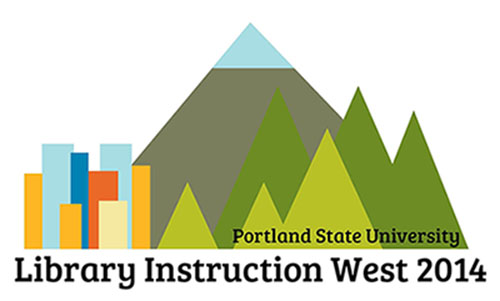Location
Portland State University, Portland, Oregon
Start Date
7-25-2014 10:45 AM
End Date
7-25-2014 11:45 AM
Subjects
Information literacy -- Study and teaching -- Congresses, Library instruction
Description
Too often, librarians equate information literacy instruction with technology. Newer teaching spaces equipped with the latest technologies and online instruction modules have almost become synonymous with student learning. While it is true that many of today's students use any number of emerging and digital technologies, their use alone does not automatically guarantee success, while few libraries may have the resources to "keep up." Current neuroscience and cognition research actually suggest that the use of technologies may actually be a barrier to student learning, particularly when it comes to higher order thinking. This session provides an overview of present brain research and learning, suggests that many 'old school' teaching pedagogies provide the kinds of inexpensive, scalable and sustainable methods of instruction delivery that may actually be more beneficial to our students. The session further demonstrates real-life examples of individual and collaborative classroom exercises.
Persistent Identifier
http://archives.pdx.edu/ds/psu/14523
Included in
Step Away From the Computer! Successful Information Literacy Instruction and Improved Student Learning WITHOUT Technology
Portland State University, Portland, Oregon
Too often, librarians equate information literacy instruction with technology. Newer teaching spaces equipped with the latest technologies and online instruction modules have almost become synonymous with student learning. While it is true that many of today's students use any number of emerging and digital technologies, their use alone does not automatically guarantee success, while few libraries may have the resources to "keep up." Current neuroscience and cognition research actually suggest that the use of technologies may actually be a barrier to student learning, particularly when it comes to higher order thinking. This session provides an overview of present brain research and learning, suggests that many 'old school' teaching pedagogies provide the kinds of inexpensive, scalable and sustainable methods of instruction delivery that may actually be more beneficial to our students. The session further demonstrates real-life examples of individual and collaborative classroom exercises.


